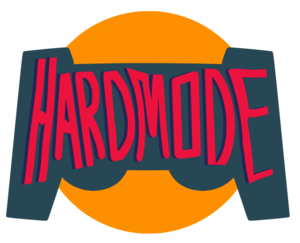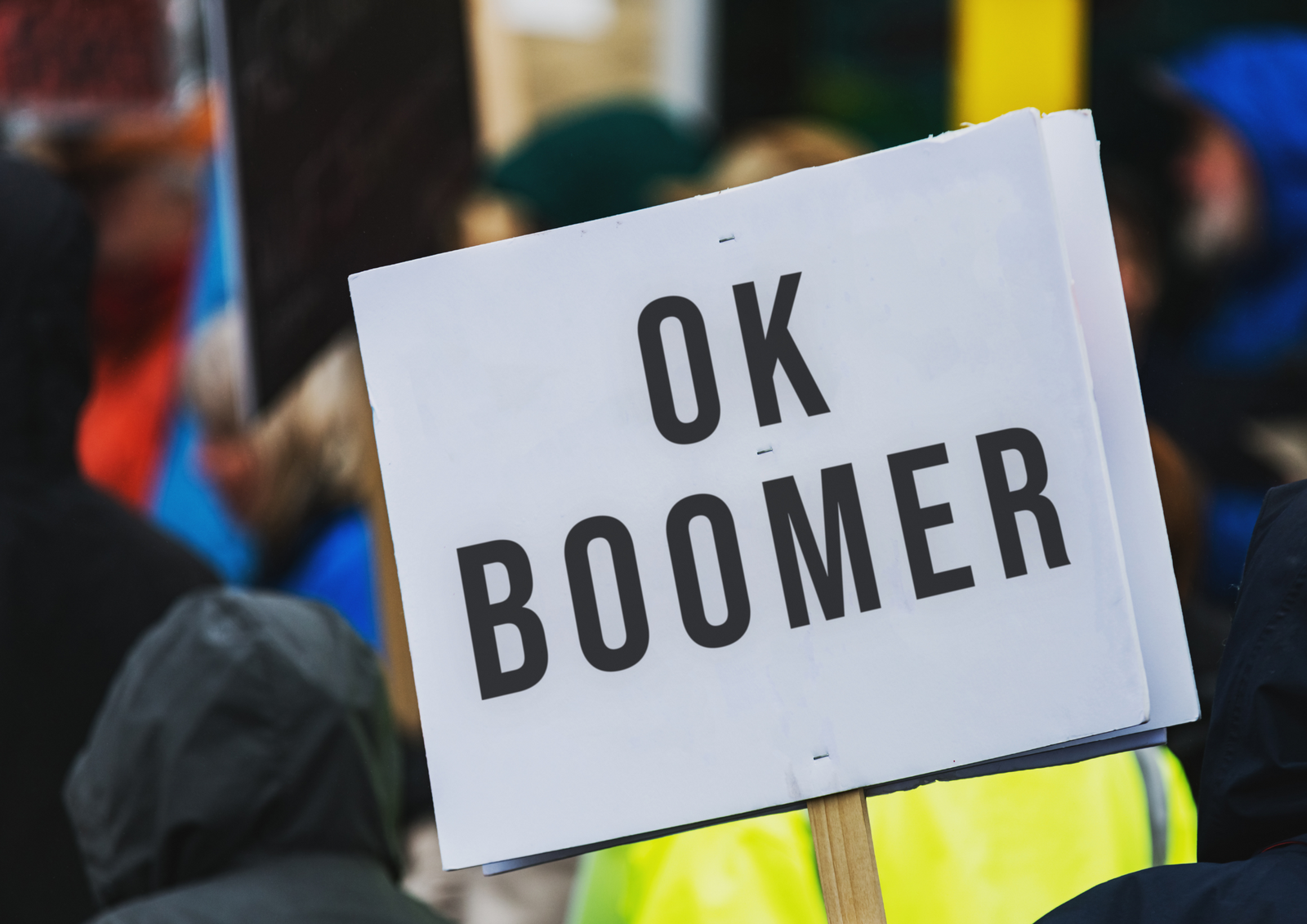'OK Boomer' is a meme, a catchphrase with an unknown origin. It hit the internet largely in 2018-2019 with retorts on Twitter and Instagram to articles or commentary criticising Millennials and Gen Z.
Boomer is short for the term 'Baby Boomer' and is referring to people born between 1946 and 1964. Millennials are anyone born between 1980 and 1995, and Gen Z anyone born from 1996 to the early 2000s (Dimock 2019).
A burst of viral Tik Tok videos in late 2019 led the phrase to hit the mainstream when the New York Times published an article titled 'OK Boomer Marks the End of Friendly Generational Relations' by journalist Taylor Lorenz (Lorenz 2019).
Numerous other articles by large media outlets reference The New York Times article. It sets the tone for the discussions of a generational conflict in its title, with the sub-heading strongly reinforcing this by using the word war. Following the article's title, an image of a shirt is presented with the words' OK Boomer, have a terrible day.' Steve Cuozzo of the New York Post responded to the meme and the article, with an article of his own titled 'Millennials' extreme hatred for Baby Boomers is totally unjustified' (Cuozzo 2019). The article uses phrases such as 'they hate us — they really, really hate us' and 'hate their elders with a ferocity never before seen in our culture' in its dismissal of the issues raised by young people 'egged on by Greta Thunberg'. Many other articles responded similarly in taking the phrase as a direct attack upon a specific age group and referencing the New York Times article, with many others also not responding directly to what the young people were stating in it. The fact the term is a dismissive response and not a direct statement seems lost in much of the discussion.
From these initial responses, there came more nuanced ones that delved into the deeper political aspects of the term. Bhaskar Sunkara in a Guardian article also included an image of the OK Boomer shirt of the same design at the top, stating that workers and retirees are struggling to survive and do not need 'rich kids shouting OK boomer at them' (Bhaskar Sunkara 2019). He goes on to critique the phrase as being a cultural attack on those older people suffering from capitalism just as much as young people and lacking a class analysis that is required to confront these issues in society.
Others argued that OK Boomer was a very specific attack against the racism and sexism of 'the American Way of Life', including the comfortable counterculture that supposedly refused that time (Ajay Singh Chaudhary 2020). Chaudhary argues that this is evidenced in the musical 'anthem' originally by Jonathan Williams and remixed by Peter Kuli (Kuli 2019) used as backing audio in TikTok videos by young people. In the video, there is 'disgust with a particular politics producing or justifying the politics of today' and 'ironically for some Marxist dismissals, the beginnings of a kind of class consciousness.' (Ajay Singh Chaudhary 2020). This political position is put forward in the Lorenz article by 18-year-old Christopher Mezher 'If it's a jab at anyone it's outdated political figures who try to run our lives.'
Lorenz refers to teens responding to a TikTok video (linzzrinzz 2019) with remixed OK Boomer reaction videos and art projects. From these creative works, Lorenz states that the phrase OK Boomer is a retort to older people in a diverse number of ways, including to anyone over 30 who says something condescending about young people and the issues that matter to them (Lorenz 2019). Then Lorenz immediately moves on to discuss monetisation of the meme by young people, and that this is nothing new but 'unlike others is selling' (Lorenz 2019). She supports this claim by a reference to another of her articles in The Atlantic that says while difficult for companies to monetise, it is critical to use third-party services to get products up quickly (Lorenz 2018). Lorenz interviews young people doing just that.
They raise issues such as climate change and the choices of the boomers negatively affecting their futures. The young people talk about the selling of merchandise to help support them in the present and future. For the most part, many articles that resulted from the original New York Times sometimes deliver scathing attacks at the perceived approach of young people to a particular age group, while not at all approaching what the young people are saying the term means.
The end of the article sums up the OK Boomer phrase well as a response to a state of mind and attitude. It is as a 'digital eye roll'.
Ajay Singh Chaudhary n.d., ‘OK! OK, Boomer: the Critical Theory of Contemporary Angst’, Dilettante Army, viewed 20 December 2020, <http://www.dilettantearmy.com/articles/ok-ok-boomer-the-critical-theory-of-contemporary-angst>.
Bhaskar Sunkara 2019, ‘Why it’s time to ditch the “OK Boomer” meme | Bhaskar Sunkara’, the Guardian, 6 November, The Guardian, viewed 20 December 2020, <https://www.theguardian.com/commentisfree/2019/nov/06/ok-boomer-meme-older-generations>.
Cuozzo, S 2019, ‘Millennials’ extreme hatred for Baby Boomers is totally unjustified’, New York Post, 2 November, New York Post, viewed 20 December 2020, <https://nypost.com/2019/11/02/millennials-extreme-hatred-for-baby-boomers-is-totally-unjustified/>.
Kuli, P 2019, Peter Kuli & Jedwill - Ok Boomer (official audio), YouTube, viewed 20 December 2020, <https://www.youtube.com/watch?v=5JTTg6Cp85M>.
linzzrinzz 2019, mom can you pick me up the old art teacher is going at it again, TikTok, viewed 20 December 2020, <https://www.tiktok.com/@linzzrinzz/video/6714782003637521670>.
Lorenz, T 2018, ‘Memes Are Becoming Harder to Monetize’, The Atlantic, 31 May, viewed 20 December 2020, <https://www.theatlantic.com/technology/archive/2018/05/memes-are-becoming-harder-to-monetize/561578/>.
― 2019, ‘OK Boomer Marks the End of Friendly Generational Relations’, The New York Times, 29 October, viewed 20 December 2020, <https://www.nytimes.com/2019/10/29/style/ok-boomer.html>.






